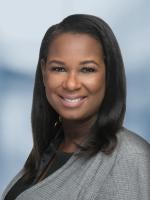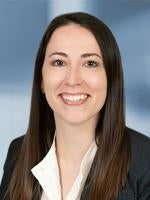As COVID-19 cases across the country begin to surge, COVID-19-related hospitalizations are also on the rise. This increase in COVID-19-related hospitalizations likely will have a number of practical implications for the health care industry. Specifically, many health care employers likely will experience staffing shortages similar to those experienced when the pandemic first began. As a result, in an effort to preserve adequate staffing levels, many health care employers may seek to invoke the Families First Coronavirus Response Act’s (FFCRA) exemption for health care providers, meaning health care employees are not permitted to take paid sick leave and expanded family and medical leave. However, in deciding which health care employees to exclude from the FFCRA’s leave provisions, employers must remain cognizant of the U.S. Department of Labor’s (DOL) definition of “health care provider,” which was recently revised and narrowed.
DOL’s Original Definition of “Health Care Provider”
In an effort to ensure adequate staffing of critical health and safety services during the COVID-19 pandemic, the FFCRA as drafted allowed employers to exclude certain employees who are “health care providers” from eligibility for paid leave. When the FFCRA was first enacted in March 2020, the DOL interpreted the definition of “health care provider” very broadly, essentially applying the exemption to any employee working at a health care facility.
However, on August 3, 2020, the U.S. District Court for the Southern District of New York (District Court) held that the DOL’s definition of a “health care provider” was too broad. Specifically, the Court held that the definition of “health care provider” under the FFCRA cannot hinge on the employer’s business classification and instead requires a role-specific determination.
DOL’s Revised Definition of “Health Care Provider”
On September 11, 2020, in response to the District Court’s decision, the DOL issued revised regulations that, among other changes, revised the definition of “health care provider” under the FFCRA. In response to the District Court’s decision, the DOL significantly narrowed the scope of the exemption to focus on a specific employee’s role and duties in determining eligibility for paid sick leave and expanded family and medical leave under the FFCRA. Specifically, according to the DOL, a “health care provider” under the FFCRA includes two groups of individuals:
1) Anyone who is a licensed doctor of medicine, nurse practitioner, or other health care provider permitted to issue a certification for purposes of the FMLA; or
2) Any person who is employed to provide diagnostic services (e.g., taking or processing samples, performing or assisting in the performance of x-rays or other diagnostic tests or procedures, and interpreting test or procedure results), preventive services (e.g., screenings, check-ups, and counseling to prevent illnesses, disease, or other health problems), treatment services (e.g., performing surgery or other invasive or physical interventions, administering or providing prescribed medication, and providing or assisting in breathing treatments), or other services that are integrated with and necessary to the provision of patient care that, if not provided, would adversely impact patient care (e.g., bathing, dressing, hand feeding, taking vital signs, setting up medical equipment for procedures, and transporting patients and samples). This includes three categories of employees:
-
Employees who provide direct diagnostic, preventive, treatment, or other patient care services, such as nurses, nurse assistants, and medical technicians.
-
Employees who directly assist or are supervised by a direct provider of diagnostic, preventive, treatment, or other patient care services.
-
Employees who do not provide direct health care services to a patient, but are otherwise integrated into and necessary to the provision those services.
Consequently, the DOL’s revised definition of “health care provider” now requires a role-specific determination that is dependent on the role and duties of the employee rather than the employer. Importantly, under this definition, an employee is not a health care provider merely because his or her employer provides health care services. Additionally, the definition does not include individuals who provide services that affect, but are not integrated into, the provision of patient care/health care services (e.g., IT professionals, building maintenance staff, human resources personnel, cooks, food services workers, records managers, consultants, and billers are not health care providers, even if they work at a hospital or a similar health care facility).
As the number of COVID-19-related hospitalizations continues to climb, employers in the health care industry may experience staffing shortages and may wish to take measures necessary to preserve adequate staffing levels. One such mechanism may involve utilization of the FFCRA’s exemption for “health care providers.” However, in evaluating leave requests and administering FFCRA leave, employers in the health care industry should remain cognizant of the DOL’s revised definition of “health care provider,” which now applies to a narrower subset of employees. Employers with questions about the application of the DOL’s definition of “health care provider” may want to consult competent counsel.




 />i
/>i
